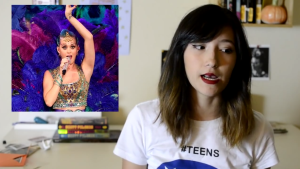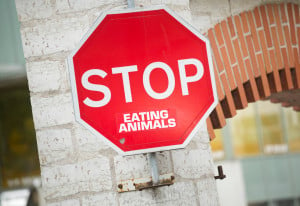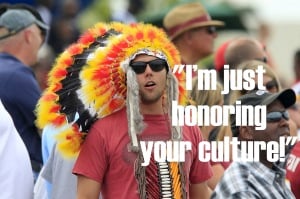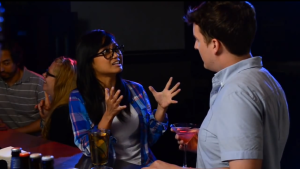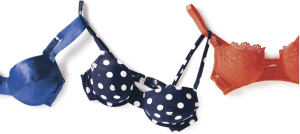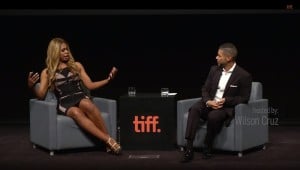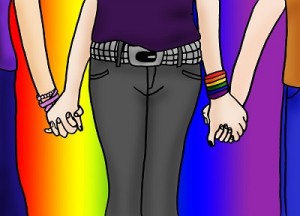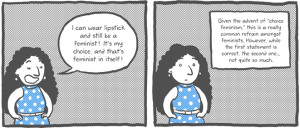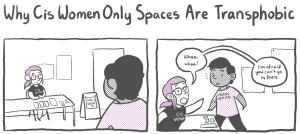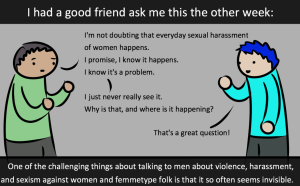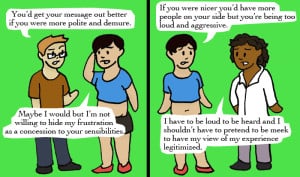Trace Dominguez: Sometimes, they’re just not that into you.
Cleo Stiller: Or anyone really.
Trace: Hey everyone. Thanks for stopping by DNews today. I am Trace, and I’m here with my good friend Cleo Stiller visiting us from Fusion. Hey, Cleo.
Cleo: Hey, Trace. Not being into others, sexually speaking, is actually a completely understandable thing. It could be that you’re asexual.
Trace: Exactly. Approximately 1% of the population identify as asexual. And the evidence indicates that it is a sexual orientation akin to homosexual, bisexual, pansexual, polysexual, hetereosexual, and so on.
Cleo: Distilling it to its most basic definition, asexuals do not have sexual feeling or desires toward others, and just like other sexual orientations, it’s not a choice or a dysfunction. It’s simply how you were born.
Trace: At puberty, when some children begin to get hair in funny places and start making eyes at each other or whatever, asexuals commonly describe confusion, being bored with the idea of sex, or simply perplexed and frustrated.
Cleo: Now, while asexuality in plants and animals is wildly documented, thinking about asexuality in humans is a fairly new concept for scientific research. At first, psychiatrists described it as a psychological disorder, but that’s an old school definition, and now the thinking is, “As long as it’s not causing the person distress, it’s not a problem.”
Trace: Asexuality was noted by Kinsey and acknowledged by other sexual researchers in their studies as well, but I thought a study at the US Sheep Experiment Station – which is a real place in Idaho – was particularly telling. Researchers were looking for ways to encourage sheep to bone more efficiently. When they looked at the herds more closely though, it turned out between five and ten percent of the sheep were gay, and about two to three percent were asexual. I want to be sure to say that, you know, sheep and humans are not a direct comparison, but this does give insight into this not amounting to cultural shifts or changing attitudes but biology.
Cleo: I know, it’s hard to imagine life without sex. But asexual people still find value in physical intimacy. A 2011 study, published in the archives of sexual behavior, found that asexual women feel physical pleasure. They just don’t associate those feelings with sexual urges.
Trace: That’s pretty cool. And, for example, they do find that some asexual people masturbate. In writings about asexuality, people describe their masturbation not as a sexual urge, but as simply cleaning the pipes.
Cleo: Now, by attempting to study those who feel no sexual attraction to others, we can also better understand those who do have sexual attraction. The Journal of Sex Research looked at a huge collection of asexuality studies, and part of the problem science is having is that there’s no single definition of what asexuality is.
Trace: But just because there’s no definition doesn’t stop science from exploring. Cleo reached out to one of the leading experts in asexuality studies, Tony Bogart, and he said his findings indicate that there may actually be more asexual women out there than there are men.
Cleo: He told me, yes, there are more women than men and that he speculates that, “Women may be biologically more flexible in their sexuality, and thus more likely to be influenced by early learnings and cultural factors.” Now, this in turn might make women less interested in sex or why they have no sexual attraction at all.
Trace: This claim is supported by other recent studies that show women tend to be more sexually fluid throughout their lifetimes as well.
Cleo: Now, you may think a life without sex sounds pretty lonely, but many asexual folks have fulfilling romantic relationships. There’s just a very deep emphasis on emotional intimacy.
Trace: Western culture can feel hypersexual and at times prudish. We are constantly bombarded with sexual media encouraging us to fulfill our biological and sociosexual needs, but just like some people are tall while others are short, sexuality comes on a spectrum and there is room for everyone.
Cleo: And here’s how I’ve come to think about asexuality: If you think of all the variations there are with sexuality, monogamy, polygamy, bisexuality, everything is so individual. So, doesn’t that also make sense that, for a small portion of the population, sex would just be completely off the table?
Trace: How do you guys feel about asexuality? Have you ever met someone who is openly asexual? Tell us down in the comments.
Cleo: Thanks for having me on DNews. Now to find more of my content on health and technology, follow me on Twitter @CleoMSF and check out my video on how you can treat your depression with robots and avatars.
“Hello, Elly.”
“Hi, I’m Elly. I was created to talk to people in a safe and secure environment.”
“We’re here at a pretty badass lab where psychologists and software developers have partnered up to work on Elly.
Trace: Thanks for coming on, Cleo. It was super cool
Cleo: Awe, thanks man. I had a good time.
Trace: You can also find me on Twitter if you like. I’m @tracedominguez. You can subscribe to DNews right here, and thanks for watching.





